Anthony Albanese calls for Australia to bring in new election system
There has been a savage reaction after Prime Minister Anthony Albanese called for a huge change to federal elections.
Federal Election
Don't miss out on the headlines from Federal Election. Followed categories will be added to My News.
Peter Dutton has weighed on Anthony Albanese’s call for four-year terms urging the Prime Minister to put up or shut up if he wants to make the big change.
Challenging the Prime Minister to end the guessing game and call the election, Mr Dutton said that Australians were sick of tired of Mr Albanese’s “thought bubbles”.
Amid rampant election speculation Mr Albanese floated the idea during a nationally televised interview on Sunrise on Tuesday morning.
But the Liberal leader said Mr Albanese was big on ideas and less enthused with taking action.
“If Mr Albanese has a proposal to have a referendum on four-year terms, then he should be upfront about it,’’ Mr Dutton told news.com.au.
“All we are seeing here is a desperate play from a desperate Prime Minister who is clinging to office.
“Australian families who are struggling to pay their bills at the moment want a PM who is focused on them – not one focused on himself and how he can stay in power for longer.
“It is a thought bubble, like the Voice. And look how that ended.”
Mr Dutton said it was time for the Prime Minister to simply call an election.
“If the PM is asking for politicians to have greater job security, then why doesn’t he stop the games and just call an election and let the Australian people have their say?’’ he said.
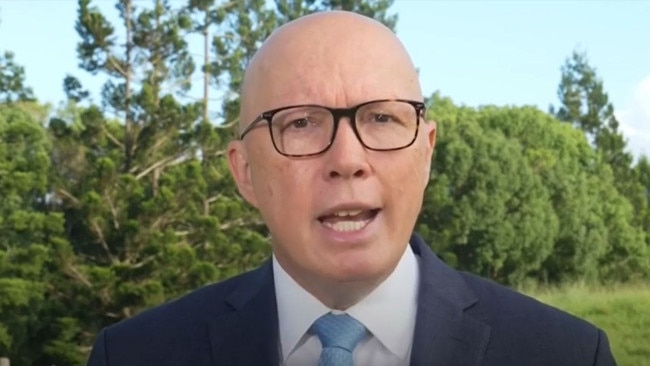
“Like spending $450 million on his failed Voice referendum, and his appointment of a minister for an Australian republic, this PM is just not focussed on the cost of living crisis and the issues that matter to everyday Australians.”
Mr Albanese repeated the call for change twice on Tuesday but expressed scepticism that the Coalition would back the change in a referendum.
“I think there should be four-year fixed terms. That’s been tried in a couple of referendums,’’ he said.
“The Coalition opposed it. Both times it failed, including when the Hawke Government tried it. That would make sense so as to avoid this speculation that occurs, that’s been occurring.
“I’ve been asked this almost since this time last year. And Peter Dutton called for an election to be called, of course, when we introduced our tax cuts for every one... he said it was such a bad idea to put extra money into people’s pockets that we should have an election over it.
“I’m just concerned about governing and getting on with doing good policy, making a difference for people. I know that people are doing it tough. But the 2025 election will be a clear choice. Labor providing cost of living support and building Australia’s future or going backwards and paying more under Peter Dutton.”
Albo calls for major election change
Mr Albanese earlier called for four-year fixed terms for the Federal Government, conceding that the existing system of elections every three years or earlier is too short.
As the Prime Minister weighs an election with three key dates emerging as favourites – April 12, May 3 or May 10 – he has conceded that he would prefer a system where the government ran for four years with the election date locked in.
To call a February 22 election he needs to call it before Australia Day and most Labor insiders believe that’s unlikely.
March is messy because of the WA election on March 8.
There are also two dates in April – the 19th and the 26th – that can be effectively ruled out because they fall on Easter Saturday and the day after Anzac Day.
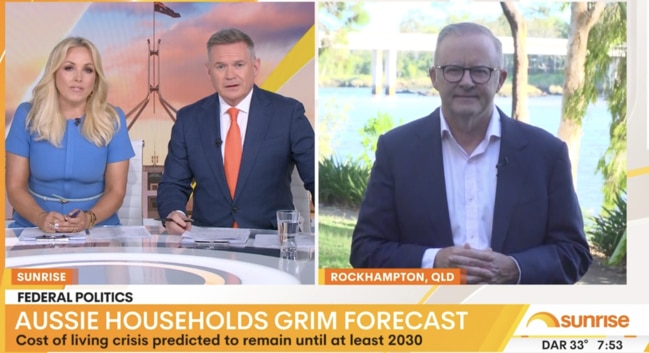
Speaking on Sunrise, host Michael Usher invited the Prime Minister to play election bingo by ruling out various dates.
“I’ve written down the potential dates for the election. I’m going to try something different. To every other journalist, you don’t say anything, but you nod if I hit the right date, April 12. April 12?
“Good try,’’ Mr Albanese responded.
“I think May 17 or before,’’ he added the last possible date for an election.
As Usher noted this was “mandated” Mr Albanese admitted he would like to end the speculation forever.
“We should have four year fixed terms like they do in most states and territories,’’ the Prime Minister said.
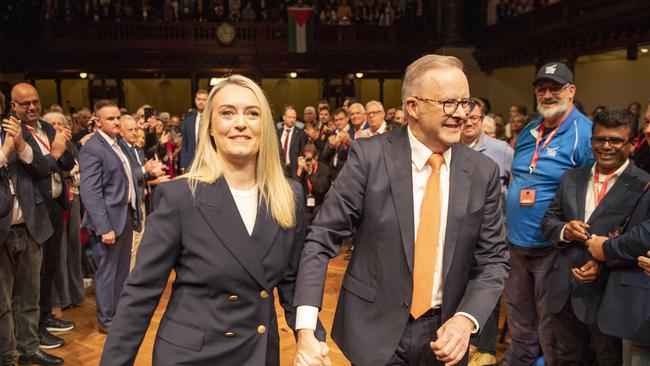
Why the PM wants a fixed term
Most Westminster-based parliamentary systems began as unfixed terms, which gives the government of the day the discretion to choose the election date.
Australia remains one of the only British colonies to not switch to a fixed parliamentary term, which is the more common norm across western democracies.
In the United Kingdom the maximum term for a government is up to five years. The Government can decide when to call a general election after reforms in 2022 revived the power of the monarch to dissolve Parliament, at the request of the Prime Minister of the day.
Back in Australia, the Prime Minister sparked rampant election speculation this week by returning to work on January 6 before embarking on a campaign blitz across battleground states including Queensland and Western Australia.
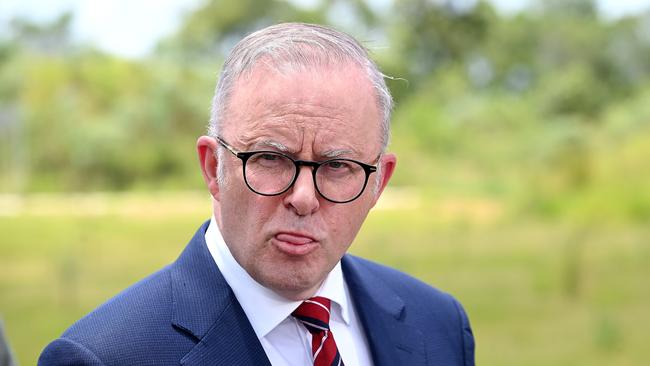
Why April 12 is the current hot tip for an election
Labor insiders believe that a surprise April 12 federal election is firming with the Prime Minister considering firing the starting gun straight after the WA election.
The option would allow the Prime Minister to avoid a clash with the WA state election on March 8.
But it would see voters in WA head to the polls in back-to-back elections in the first half of 2025.
By calling the federal election in early March, the Prime Minister would also avoid the need to bring down the federal budget which is set down for March 25.
However, parliament would return on February 4 for a fortnight sitting.
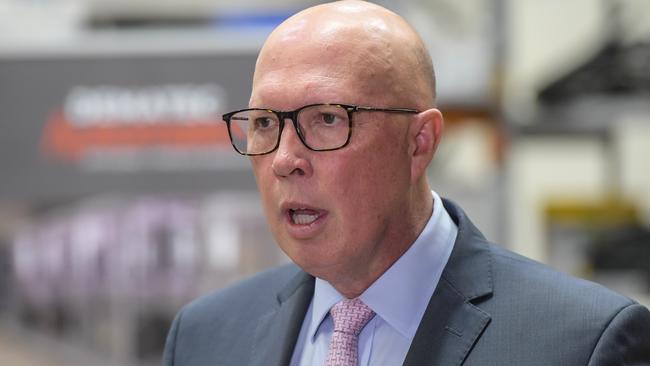
Labor would remain hopeful – but not confident – of an interest-rate cut before April 12. There are two Reserve Bank meetings before that date.
The 2025 Australian federal election must be held on or before May 17, 2025.
Labor insiders believe that March to May is the likely window but that April 12 or May 3 or May 10 are the dates to watch for the federal election.
Australia doesn’t traditionally hold federal elections in April, what with Easter and school holidays.
But that could be set to change.
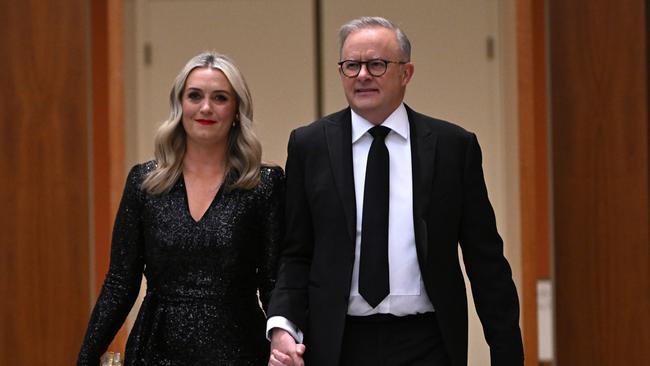
Speculation over the election date flared again last year after WA Premier Roger Cook told a business breakfast in Perth that he was seeking legal advice on whether a WA election date change is possible should Mr Albanese choose to call an election at the same time.
Subjecting WA to a dual state and federal election in March sounds wild and potentially dangerous for the PM. That makes a date on either side of the WA election more likely.
Mind you, an April 12 federal election would need to be called straight after the WA election with the deadline to call an election for that date on March 10, two days after sandgropers head to the polls on March 8.
Why a March 8 federal election won’t happen
The biggest reason for an election in April or May is the WA state election on March 8.
While in theory a federal election would trump a state election and the WA premier Roger Cook would have to move it there’s no chance of that happening.
WA is critical to the ALP’s hopes of re-election.
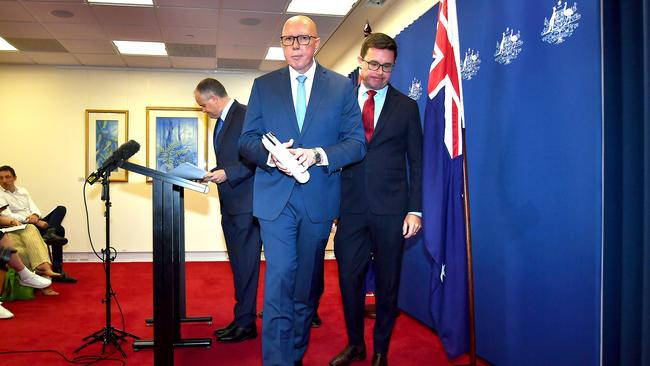
Rather than seriously pissing off WA voters by making them head to the polls twice in a month, most Labor insiders believe the federal election will be held on April 12 or May.
What about February 22?
Late January is the deadline to call a double dissolution election for February 22 – but there are plenty of reasons why that’s regarded as unlikely.
The biggest issue is that the Prime Minister would have to call an election before Australia Day.
It would also involve overlapping campaigning in WA with the state election to be held on March 8.
May 17 is the last possible date that the Prime Minister can call the federal election with the standard half-senate arrangements.
What’s tricky about a March election?
Traditionally, March has always been a big month for federal elections. Think of John Howard’s election victory on March 2, 1996. Paul Keating’s surprise win on March 13, 1993. But also the 1990 election and Bob Hawke’s first victory in 1983.
The window to call a March election is between January 27 and February 24.
The benefit of a March election is the Prime Minister and his Treasurer don’t have to hand down the March 25 budget as planned which is – or was – expected to include some nasty numbers.
Depending on when the election is called the Prime Minister wouldn’t have to return to parliament on February 4 as planned, although there’s reasons he may want to do that to put the pressure on Peter Dutton.
The downside of a March election includes that it gives the RBA less time to deliver a rate cut.
An April or May election gives the Albanese Government a fighting chance of a rate cut.
But the big reason not to call a March election is that it clashes with the WA state election and that narrows the Prime Minister’s options a lot.
A big clue on why March isn’t a goer – everyone is on holidays and there’s no focus groups
There’s some key Labor insiders you would expect to be sitting at their desks with their pencils sharpened if an election was going to be called in February or even March.
Chief among them is the ALP secretary Paul Erickson who will run Labor’s campaign.
He’s on leave until mid January, not that anyone is really ever on holiday in an election year.
The Prime Minister’s chief of staff Tim Gartrell took a brief break but was back at his desk on Monday, January 6.
But there’s plenty of key Labor staffers still enjoying a quick break. That suggests everyone is trying to slot in a quick holiday before the endless slog of an election year.
If Labor was heading to a March election you would expect them to be running focus groups right now and they’re not yet.
The deadline to call a March 1 election is January 27.
But the biggest reason to avoid March remains the WA election.
Originally published as Anthony Albanese calls for Australia to bring in new election system





